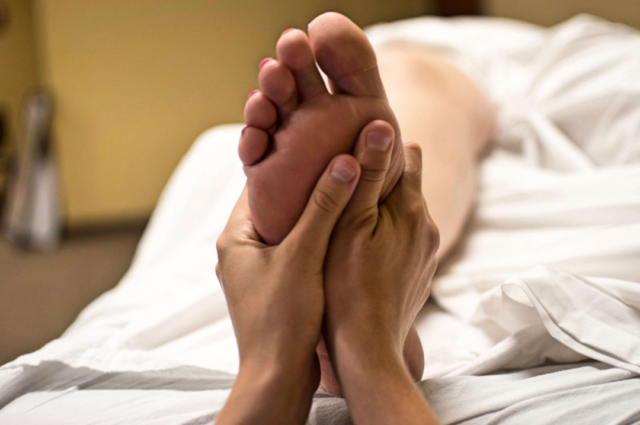
Arthritis – it can be painful, frustrating and limiting for many New Zealanders. In fact, almost 50% of those aged over 60 years, and almost all over 80 years old, are affected by osteoarthritis arthritis in New Zealand. Yep, that means that if you haven’t already, you and your family members have a high chance of developing arthritis as we age!
Often, arthritis is perceived to have limited treatment options because of its degenerative and irreversible nature. The truth is that while you can’t reverse the damage from osteoarthritis, we definitely have tools to help ease your pain and improve your comfort!
But first, let’s start with the basics.
What is osteoarthritis?
Osteoarthritis describes the wearing down of the cartilage that covers the ends of our bones at the joints. Cartilage typically functions to help absorb shock, acting as a rubbery cushion, as well as creating a slippery surface for bones to move smoothly and efficiently past one another. As the cartilage is worn down, bones start to rub against one another. This causes pain and limits our ability to easily (and painlessly) move our joints and perform our everyday tasks.
What causes arthritis?
The term ‘wear and tear’ that is often associated with osteoarthritis refers to the loads that we put on the joints during our lifetime that cause them to wear down. This being said, any repetitive activity or action that overloads and stresses the joints can contribute to the development and progression of osteoarthritis. For example, this may be from our work, or may be as a result of increased weight (or both). Other contributing factors can include previous injury to our joints or bones, or infections. While osteoarthritis isn’t typically hereditary, it can run in families.
What are the symptoms?
The symptoms of osteoarthritis progress and worsen over time, meaning you’ll likely start off with a twinge or mild discomfort in a joint. While not all changes to the joints are symptomatic, symptoms that present can include:
- Painful at the joints which may be exacerbated by use
- Swelling and redness
- Limited movement at joints
- Creaking in the joints
- Changes to the bone/joint shape (including irregular bony growth at the joints)
- Weakened muscles surrounding the joints
How is it treated and what can you start doing today to ease the pain?
While the damage from osteoarthritis can’t be reversed or treated completely, they can be managed so you can feel more comfortable, have less pain, and generally move better.
Our team specialise in custom-designed orthotics that will take pressure away from the painful joints and alter the way your foot and joints function. By changing your foot biomechanics and redistributing pressure, painful symptoms can be relieved or lessened, meaning that walking and performing daily activities can become a lot more comfortable. It also means that with the progression of your symptoms can be slowed by reducing the stress on the joints of your feet.
We’ll also assess your footwear, talk about low-impact exercises to give you back strength and mobility to your joints, and discuss your regular activities and how they’re impacting on your symptoms and progression of arthritis.
For more information or to book an appointment, give us a call on 09
523 2333, and we’ll be happy to help!


 Looking forward to a retirement filled with… anything you like? Whether you’re retired or nearing it, it’s an exciting time that many spend decades looking forward to, knowing you can plan your days on your own terms, and finally enjoy all the things you haven’t had time for previously.
Looking forward to a retirement filled with… anything you like? Whether you’re retired or nearing it, it’s an exciting time that many spend decades looking forward to, knowing you can plan your days on your own terms, and finally enjoy all the things you haven’t had time for previously.

 Arthritis – it can be painful, frustrating and limiting for many New Zealanders. In fact, almost 50% of those aged over 60 years, and almost all over 80 years old, are affected by osteoarthritis arthritis in New Zealand. Yep, that means that if you haven’t already, you and your family members have a high chance of developing arthritis as we age!
Often, arthritis is perceived to have limited treatment options because of its degenerative and irreversible nature. The truth is that while you can’t reverse the damage from osteoarthritis, we definitely have tools to help ease your pain and improve your comfort!
But first, let’s start with the basics.
Arthritis – it can be painful, frustrating and limiting for many New Zealanders. In fact, almost 50% of those aged over 60 years, and almost all over 80 years old, are affected by osteoarthritis arthritis in New Zealand. Yep, that means that if you haven’t already, you and your family members have a high chance of developing arthritis as we age!
Often, arthritis is perceived to have limited treatment options because of its degenerative and irreversible nature. The truth is that while you can’t reverse the damage from osteoarthritis, we definitely have tools to help ease your pain and improve your comfort!
But first, let’s start with the basics.